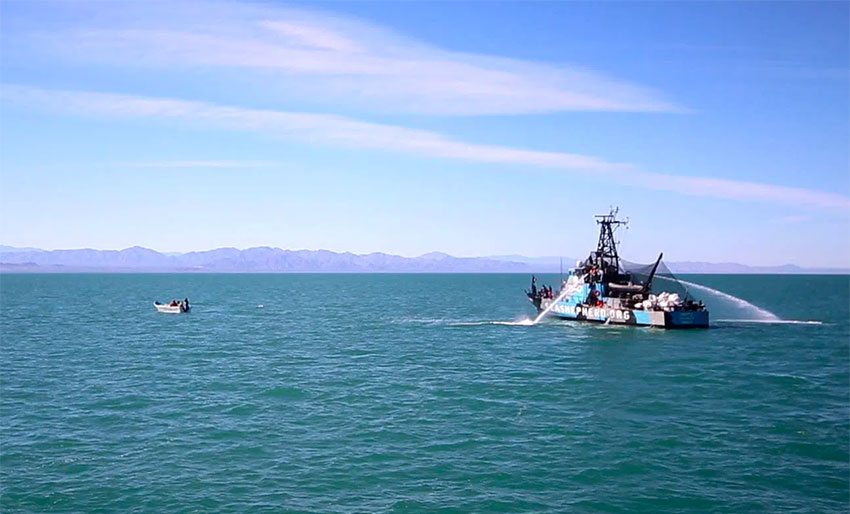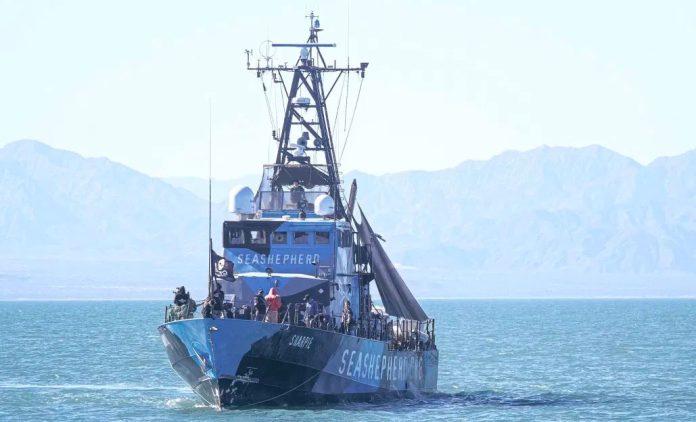Conservationists and authorities on board a Sea Shepherd Conservation Society vessel came under gunfire in the upper Gulf of California on Saturday while on a voyage to protect the critically endangered vaquita marina porpoise.
Four fishing skiffs known as pangas approached the M/V Sharpie and began to chase it at full speed just after 10:00 a.m., Sea Shepherd said in a statement.
At least two shots fired from the pangas landed in the water near the Sea Shepherd vessel but it was not hit. There were no injuries among the conservationists on board nor the officials from the navy, Federal Police and Environmental Protection Agency (Profepa) who accompanied them.
The incident occurred in an area of the upper Gulf of California known as a “critical zone” because several vaquitas have been sighted there.
In response to the attack, the captain of the Sharpie carried out anti-piracy procedures, which included the use of water cannons.

“This just shows how aggressive the poachers are here,” said Captain Jacqueline Le Duc.
“It proves to us that they are armed and that we need to take every panga that we come across seriously, because we have no idea what they are capable of,” she said.
Profepa condemned the attack in a statement and said that it would cooperate with investigations to bring the perpetrators to justice. It also said that it would continue to collaborate with Sea Shepherd and security forces in the effort to protect the environment.
The vaquita marina population has been decimated by the illegal use of gillnets to catch totoaba, whose swim bladders are considered a delicacy in China and sell for thousands of dollars. The mammals often become entangled in the nets and drown.
Experts estimate that there are only between six and 19 vaquitas left in the Gulf of California, the only place in the world they live.
The attack on Saturday occurred in the same area where Sea Shepherd found a dead vaquita trapped in a net last March. Profepa said that the vaquita was in a state of advanced decomposition but had stab wounds consistent with the cutting of the net in which the animal was entangled.
Sea Shepherd has been collaborating with Mexican authorities for six years to remove gillnets from the Gulf of California.
Desperate to protect the fat profits they make from selling totoaba on the black market, poachers have resorted to violence in the past.
The Sea Shepherd vessel M/V Farley Mowat was attacked last January by crew members on more than 50 skiffs, who threw rocks and molotov cocktails at the ship, breaking its windows and causing its hull to catch fire.
The same vessel was ambushed and boarded by poachers earlier the same month, the United States-based marine conservation organization said.
Scientists said in October that they saw over 70 fishing boats in the 150-square-kilometer zero-tolerance zone on a single day that month. They also photographed a vaquita swimming alongside one of the vessels working in the area where the use of gillnets is prohibited.
Source: AP (en), Sin Embargo (sp)
